Description
2-Day Rational Emotive Behavior Therapy (REBT) Certificate Course – Debbie Joffe Ellis
The Holistic Approach of REBT – Healing Mind, Emotions, and Self-Defeating Behaviors
Take advantage of this rare opportunity to learn the empowering, vigorous, compassionate, and effective evidence-based approach of Rational Emotive Behavior Therapy (REBT) from Dr. Debbie Joffe Ellis, the wife and career partner of the genius and revolutionary Albert Ellis, PhD, who created it. REBT is both a life-enhancing therapeutic approach AND way of life for those who adopt it as such! It is the most holistic of the cognitive psychotherapy approaches. It is evidence-based, providing no-nonsense and elegant methods, techniques, and guidelines which are at the same time imbued with a manner and philosophy of tolerance and unconditional acceptance.
During these times that contain much upheaval and uncertainty, there is no better time to learn and practice this powerful and holistic approach – which not only can enhance the healing and progress of clients and others we work with, but can also be a most healthy way of life for each of us who provide the healing and care for others. REBT enhances the work practitioners do in helping clients, patients, and others, and boldly encourages them to apply the principles to their own lives. The presenter, Dr. Debbie Joffe Ellis, is known as one of the world’s greatest teachers of the approach, and was entrusted by the late Albert Ellis, PhD to continue his work.
- Articulate the philosophical underpinnings of the REBT approach as it relates to treatment outcomes.
- Examine the main aspects and tenets of REBT to inform the clinician’s choice of treatment interventions.
- Demonstrate REBT tools and techniques to put to practical use in session.
- Summarize the techniques that are most effective for various emotional and behavioral disturbances to improve client level of functioning.
- Differentiate REBT tenets that separate it from other cognitive approaches in relation to assessment and treatment planning.
- Identify and experience REBT’s holistic nature, timeless effectiveness, and relevance to improve clinical outcomes.
- Explain the pivotal aspects of the effective REBT practitioner as it relates to case conceptualization.
- Compare the methods and techniques in REBT to inform clinical treatment interventions
- Implement REBT techniques to alleviate symptoms of anxiety, depression, PTSD, and addiction issues.
- Contrast rational thinking vs irrational thinking for purposes of client psychoeducation
- Teach clients how to integrate cognitive techniques, emotive-evocative techniques, and behavioral techniques into their daily lives to alleviate symptoms and improve level of functioning.
- Communicate the benefits and importance of homework as related to clinical treatment.
REBT’s Impact on the Worlds of Psychology, Counseling, and Therapy
- Massive cognitive revolution in psychology
- History and development
- The genius of Albert Ellis, PhD
- Innovative ways of coping with challenging life experiences
What is REBT and Why is it so Beneficial for my Clients?
- Basic tenets
- Unconditional acceptance of self, others, and life
- Healthy rational thinking vs. unhealthy irrational thinking
- Healthy negative emotions vs. debilitating unhealthy emotions
- Low frustration tolerance vs. high frustration tolerance
- The ABC self-help tool
- Vigorous REBT disputing
- Benefits and importance of homework
Methods and Techniques in REBT
- Cognitive Techniques
- The ABCDE method
- Assessing cost-benefit ratio
- Distraction methods
- Modeling
- Mindfulness
- Emotive-Evocative Techniques
- Rational Emotive Imagery
- Shame-attacking exercises
- Coping statements
- Role play
- Humor
- Gratitude
- Behavioral Techniques
- In-Vivo Desensitization
- Relapse prevention
- Using reinforcement
- Skill training
- Application to specific mental health issues
- Depression
- Anxiety
- Shame/guilt
- Rage
- Addictive behaviors
- PTSD
- OCD
- REBT in practice
- Sole approach
- Multi-modal
Demonstrations
- Demonstration of REBT techniques – not role plays!
The Holistic and Philosophical Nature of REBT
- Mindfulness and ‘Thinking about our Thinking’
- REBT and Spirituality
- REBT and Buddhism – similarities and differences
- The heart of REBT
- Unconditional acceptance
- Gratitude
- Compassion
- Empathy
The Effective REBT Therapist
- The importance and how-to’s of self-care
- Recommendations for greater effectiveness as a practitioner and on ourselves
REBT Myth-Busting
- Exposing myths and misconceptions, and presenting the truths
- Unique REBT qualities which set it apart from the many cognitive approaches
- Later approaches derived from tenets of REBT
- CBT
- Other approaches
REBT in action!
- Exercises
- Practice the ‘ABCDE’ method
- Video of REBT counseling session
- Video – Rare footage of Albert Ellis, PhD
- Discussion and Q & A’s
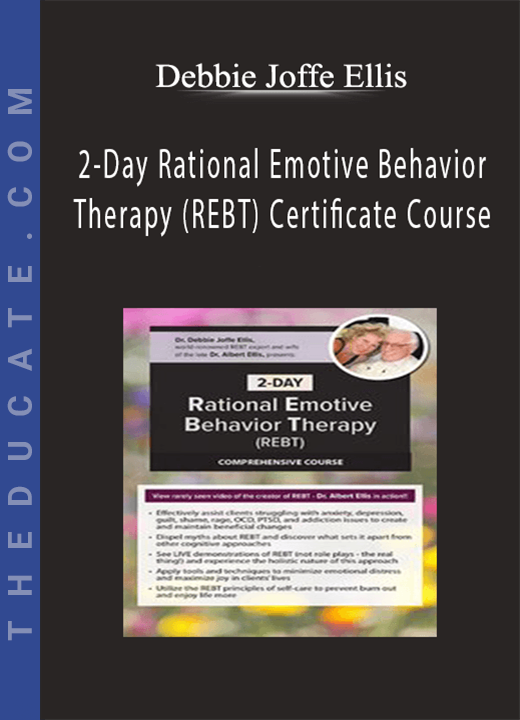


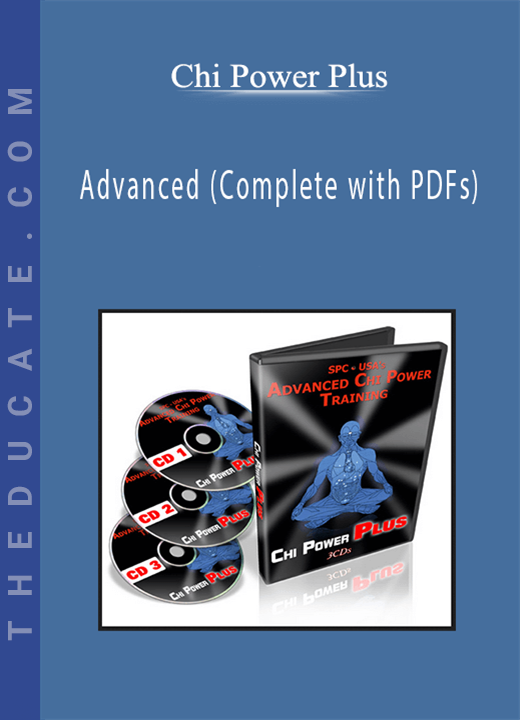
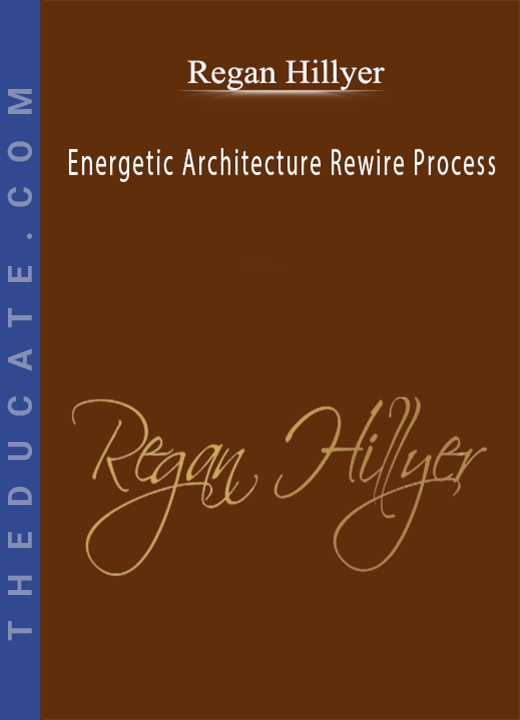
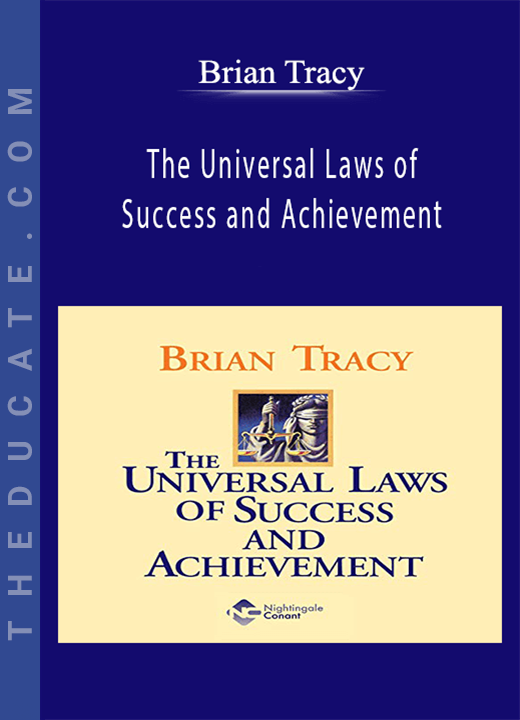
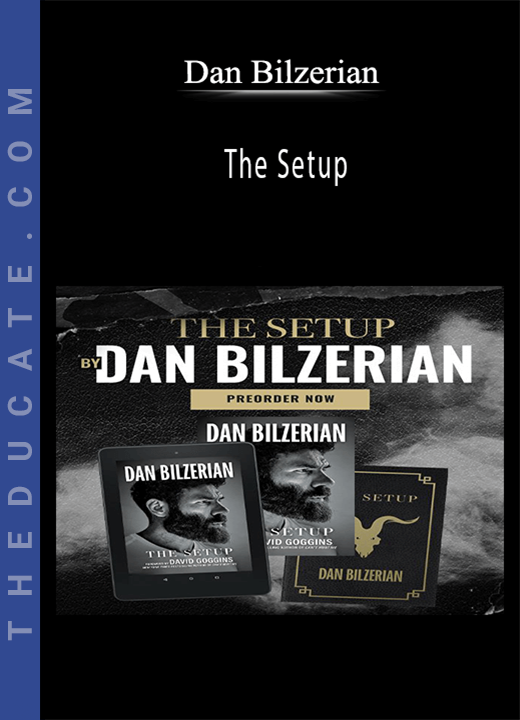
10 reviews for 2-Day Rational Emotive Behavior Therapy (REBT) Certificate Course – Debbie Joffe Ellis
There are no reviews yet.